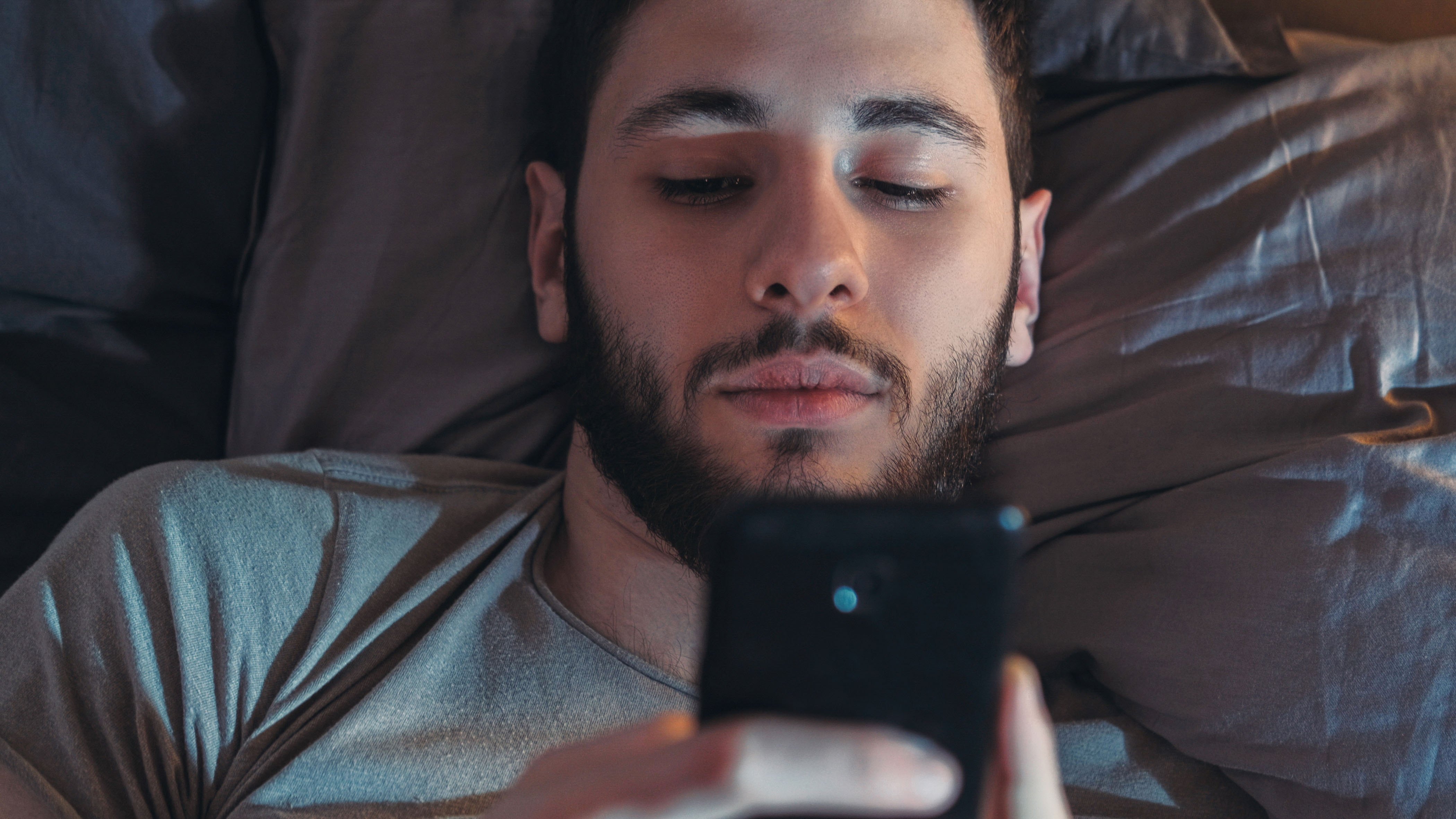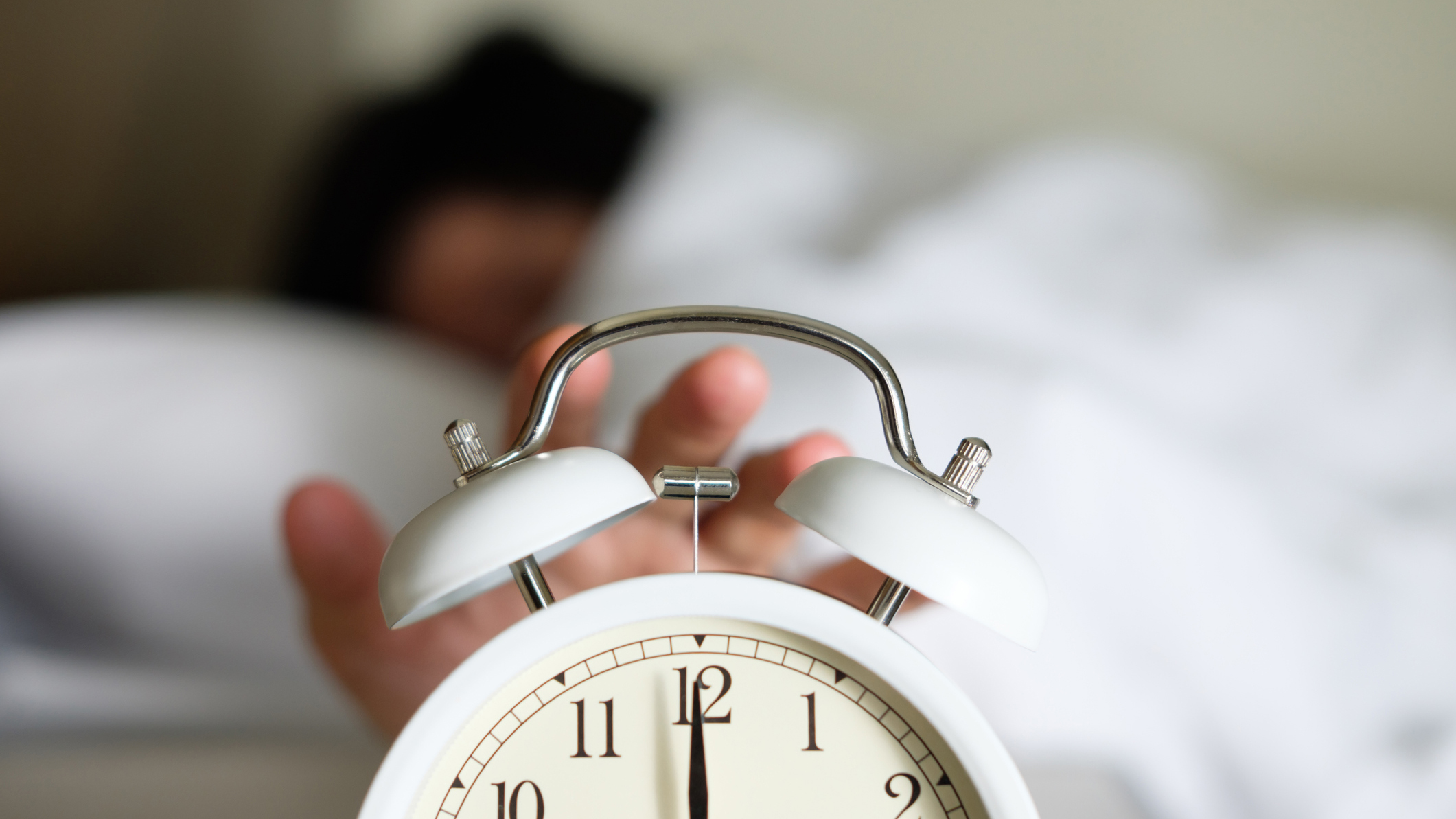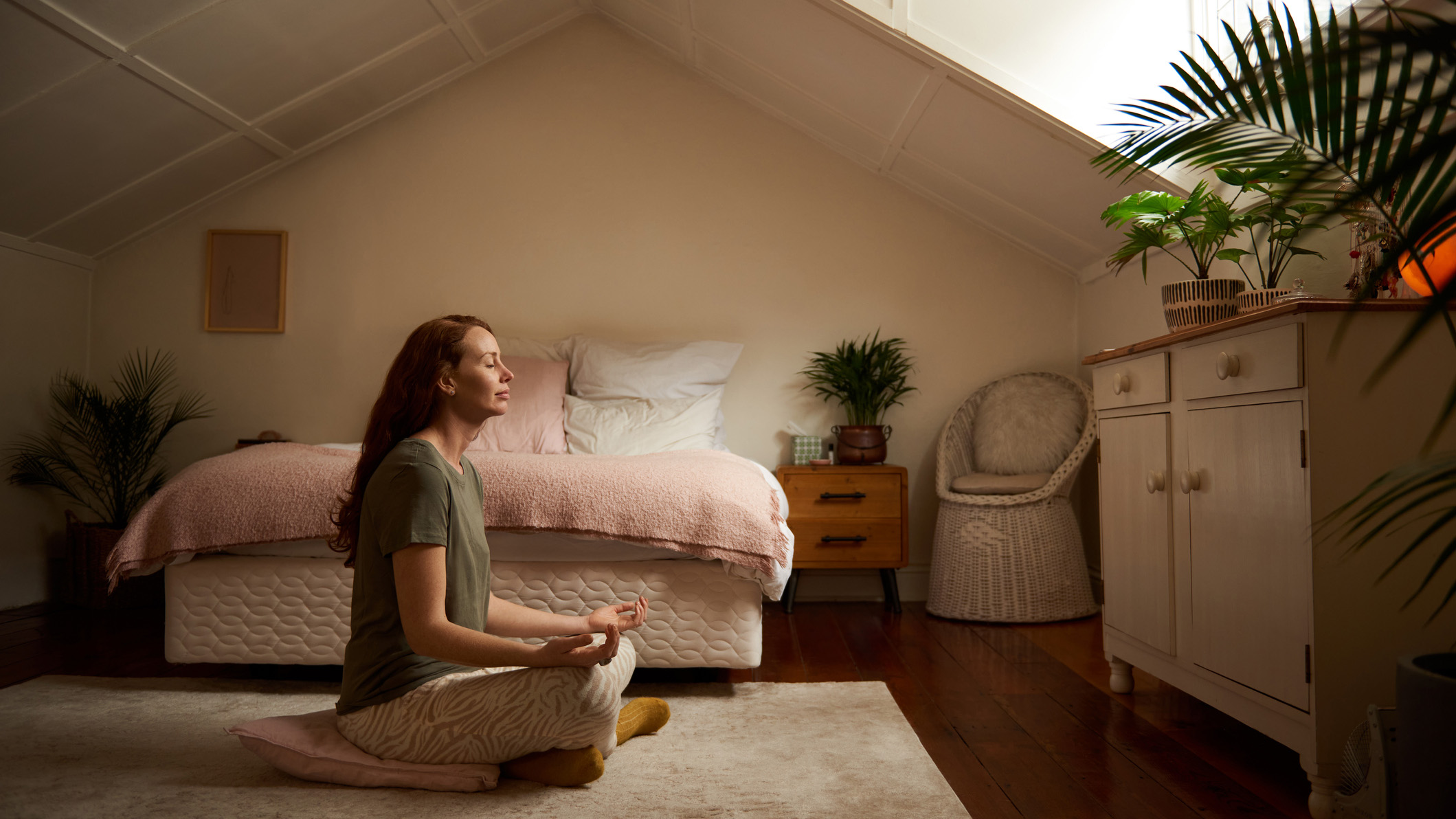Revenge bedtime procrastination is harming my sleep — here's how I'm putting a stop to it
I'm a sleep writer suffering from revenge bedtime procrastination – here are five things I'm doing to stop

As a Sleep Features Editor, people often assume I have little trouble getting a full night’s rest. But although it’s my job to steer people towards their own sleep goals – whether that’s via the best mattress recommendations or advice on how to handle sleep deprivation – a restorative night’s rest is something that often eludes me.
Initially coined in China, the term revenge bedtime procrastination gained traction when journalist Daphne K Lee tweeted about it. Lee described the phenomenon as when “people who don’t have much control over their daytime life refuse to sleep early in order to regain some sense of freedom during late-night hours.”
This is because I suffer from revenge bedtime procrastination, a term characterised by the sufferer carving out leisure time at the end of a busy day in lieu of sleep. My inability (refusal?) to switch off and get some much-needed shut eye impacts every part of my waking day, with sleep deprivation wreaking havoc on my ability to focus and regulate my mood – not to mention the risk to my cardiovascular health.
And yet, breaking the revenge bedtime procrastination habit can sometimes feel like an insurmountable mountain. I resist the overwhelming urge to go to sleep in order to watch silly cat videos on TikTok, or perhaps casually rewatch the entire London 2012 olympic games opening ceremony.
I’m well aware that this isn’t normal behaviour for a functioning adult with children and other responsibilities, so I've been exploring different methods and tips to help me stop my pre-sleep procrastination. After some experimentation, the following five things have proved the most effective in helping me to overcome revenge bedtime procrastination – I hope they work for you too…
5 tips to stop bedtime revenge procrastination
As a revenge bedtime procrastinator, here are five tried and tested things that help me stop doomscrolling and fall asleep instead...
1. I carve out leisure time during the day
While anyone can suffer from revenge bedtime procrastination, research indicates that women and students are at a higher risk of succumbing to it. With little opportunity to enjoy any leisure time in their waking day, they instead use the time when they should be sleeping to enjoy some well-deserved downtime.
“Experiencing small moments for myself during the day makes me less likely to seek them out at bedtime”
I realise that my own revenge bedtime procrastination is more pronounced during busy periods in my life. When I recognise this, I make sure I carve out small pockets of time specifically for leisure during the day – regardless of how busy I am.
Sign up to get the BEST of Tom's Guide direct to your inbox.
Get instant access to breaking news, the hottest reviews, great deals and helpful tips.
This could be as minor as a brisk walk around the block during my lunch break, doing some meditative breathing while waiting for the kettle to boil or chatting to a friend during my commute. I’ve come to learn that experiencing small moments for myself during the day makes me less likely to seek them out at bedtime.

2. I set a sleep schedule – and stick to it
When people have advised me to set a sleep schedule in the past, it has usually been met with a petulant remark about not needing one. But if, like me, you’re serious about making sleep a priority, a sleep schedule is an incredibly effective place to start.
By implementing a consistent bedtime and wake time (yes, even on weekends), your body’s natural circadian rhythm – which describes your body’s internal clock – will begin to establish a healthy sleep and wake pattern. This means that you will naturally begin to feel sleepy in the run up to bedtime, will drop off faster and feel refreshed upon waking.
3. I get some exercise outdoors
In order to resist revenge bedtime procrastination (and stave off the dreaded next-day exhaustion), I find that exercise is hugely important to the quality of my sleep.
“I’m slowly starting to realise that what I’m actually doing by forgoing sleep is punishing my already-frazzled nervous system”
Not only does exercise help promote deep restorative sleep, the feel-good endorphins I experience afterwards make me feel less inclined to seek out time for myself later in the evening.
I always opt to exercise outdoors in order to increase my exposure to natural sunlight, which is important for melatonin and serotonin production, the hormones that help set your circadian rhythm. Adequate sunlight exposure is especially important during the winter months, when less sunlight exposure can disrupt our circadian rhythms.
4. I create a relaxing bedtime ritual
For far too long I have mistaken revenge bedtime procrastination as my reward for a busy day, something that I deserve because I haven’t had a minute to myself. However, I’m slowly starting to realise that what I’m actually doing by forgoing sleep is punishing my already-frazzled nervous system.
Instead, my bedtime ritual is my reward. This could include a warm bath (the temperature drop you experience when you get out mimics the temperature drop you experience when you fall asleep, making dropping off easier), reading a book, journaling or simply getting ready for bed.

Regardless of whatever you choose to do, a regular bedtime routine lasting between 30 and 60 minutes before bed will help send a signal to your brain that sleep is imminent.
5. I impose a digital device ban
We all know that the blue light emitted from our smartphones and TVs hinder our body’s natural production of melatonin, which is the hormone that tells our brains and body that it’s time for sleep. But even when armed with this knowledge, it can be incredibly hard to pull yourself away from the lure of your phone’s bright lights and sounds.
Before you fall down a rabbit hole of social media or real estate sites (just me?), be clear about your bedtime intentions. Set a sleep schedule on your phone, which will silence incoming messages and tell you when it’s time to begin your bedtime routine. If you still find yourself tempted to scroll, switch it to aeroplane mode. Better still, turn your phone off entirely.
How your bedroom can stop revenge bedtime procrastination
It's much harder to stay awake for hours, scrolling through social media when you're lying in a super-comfy bed, with calming sounds playing in the background. So many sleep cues will be firing inside your brain that revenge bedtime procrastination won't seem that appealing in the face of a good night's sleep.
Claire Davies, Tom's Guide's Sleep Editor, explains how to turn your bedroom into an oasis of calm: "In order to optomize your bedroom for sleep, clear away the clutter as this instantly lowers your cortisol levels. Dim the lights (bright or stark lighting inhibits the production of melatonin, the sleepy hormone) and take some deep, calming breaths. I personally recommend The Military Sleep Method, but any type of calming breath work will do.
"When your bedroom looks and feels calm, cool and quiet, you'll feel more inclined to let go of the stresses of the day, to relax and allow yourself to drop into a space where sleep can happen."
If your bed isn't comfy or is showing signs of sagging, natural decay or deep staining that could be mattress mold, then it's time to buy a new mattress in a box that suits your body and sleep needs. Take a good look at your pillow too and if it's more than two years old, or can be folded in half and remains that way, consider investing in the best pillow for your sleeping position. The correct pillow will reduce your chance of developing neck and shoulder pain, among other issues.

Nicola is the Sleep Editor at Tom’s Guide, where she helps steer the mattress and sleep content published on Tom’s Guide, including our Best Mattress for Back Pain buying guide. With a career in journalism spanning the best part of two decades, Nicola brings experience to the team and the knowledge of what makes a great article, whether that’s a how-to mattress cleaning feature, a deep dive into melatonin gummies, or an in-depth mattress review. As a sleep editor, few better understand how important a decent mattress is to the overall quality of our sleep, and precisely how our sleep impacts our physical and mental health. As well as tackling the vast topic of sleep, Nicola joins the raft of expert mattress specialists at Tom’s Guide, who test and compare a wide range of mattresses in order to guide readers towards the very best options on the market.
